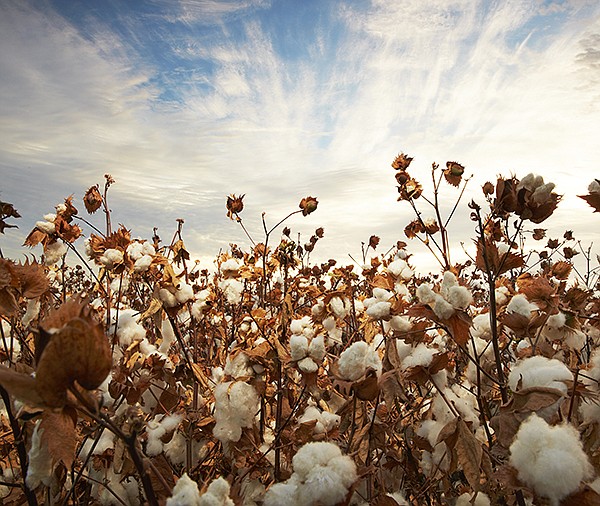By the end of 2022, TextileGenesis will have created traceability for over 500 million units in the global fashion industry.
COTTON TRACEABILITY
Supima and TextileGenesis Form Strategic Partnership for Cotton Traceability Standards
If you’re going to be part of a fashion scandal, it’s much better if you’re, say, the designer of a risqué dress worn on the red carpet since a little notoriety can be a boon to business. The kind you don’t want is the kind that befell red-logoed retailer Target six years ago when it turned out a bunch of fashions from so-called Egyptian cotton it was selling that were not, in fact, from the land of the pyramids.
Supima, the brand for American-grown Pima cotton, is taking bold new steps to make sure its fine cotton is never misrepresented, recently announcing a strategic partnership with TextileGenesis to establish the new industry-benchmark platform for authenticating cotton. The fashion industry has had to take a look in the mirror when confronted with the cold-water face splash that there is ostensibly more organic cotton in the supply chain than actual organic cotton produced.
“We don’t want to be caught in those scenarios,” said Supima CEO Marc Lewkowitz. “We want to be authentic, responsible and provide a system that gives the credibility that everyone in the supply chain deserves—including the customer.”
Deceit, or simply negligence, about the actual origin of the cotton in an apparel item can occur at any point in the supply chain, but the primary vulnerability is in the manufacturing stage—that is, in yarn or fabric production. Here’s where cotton can turn out to not be what it claims to be and a brand, retailer and consumer are none the wiser. Retailers, however, have been known to turn a blind eye to less-than-scrupulously documented practices, and if a piece of paper says that the cotton is organic, then that’s good enough; no proof required.
Supima hopes to bring a halt to such practices. “Cotton is used as a generic term, but there’s nothing generic about cotton,” said Lewkowitz. “It’s grown in many different nations, represents 80 percent of the world’s natural fibers, and is grown under many different agricultural and economic conditions. It becomes important when it comes to sustainability and responsibility because in the fashion industry nothing we do is sustainable. It’s a system based around the consumption of product.”
Founded in 1954, Supima represents 100 percent of the American Pima-cotton industry and has been developing this project for a dozen years. The blockchain platform in partnership with TextileGenesis will digitally connect Supima’s comprehensive supply chain all the way from growers to brands and retailers.
TextileGenesis is a market-leading traceability platform custom built for the fashion and textile ecosystem that has partnered with over 40 worldwide brands to create fiber-to-retail traceability for premium and certified materials. By the end of 2022, TextileGenesis will have created traceability for over 500 million units in the global fashion industry.
This collaboration with Supima is setting a new benchmark for the cotton and premium-fibers industry and paves a new path for the entire fashion ecosystem,” said Amit Gautam, founder and CEO of TextileGenesis. “We are creatively combining three major innovations—digital tokens–based article-level traceability, forensic physical verification and Supima-brand licensing in a single integrated platform. It creates a new platinum standard in the industry for end-to-end traceability and physical verification.”
TextileGenesis Fibercoin technology will be integrated into Supima’s licensing program and applied to all branded fiber throughout the supply chain. This pioneering effort for cotton sourcing sets a new standard for responsibility in the global textile industry and consumer marketplace. Moreover, integrated within this new digital platform, Supima’s technology partner Oritain will provide the forensic origin authentication for Supima cotton across the platform, resulting in vastly increased traceability, transparency and authenticity.
“If you don’t know where your cotton comes from, then you have no idea what practices were applied,” said Lewkowitz. “You’re dependent upon old trust paradigms that are fraught with opacity that is often intentional.
“This will be the new benchmark brands and retailers have been asking for,” Lewkowitz continued, “and is even more relevant in the wake of new regulatory oversight with regard to the New York Fashion Act and new EU oversight that’s coming, which will force brands and retailers to have more ownership over the authenticity of their products.”






















